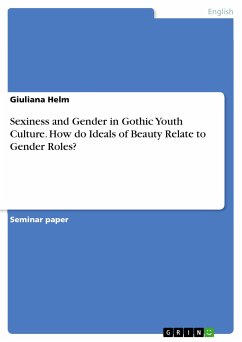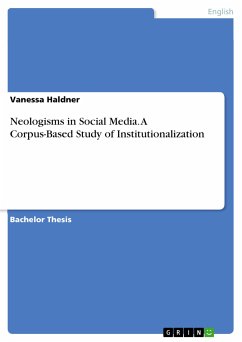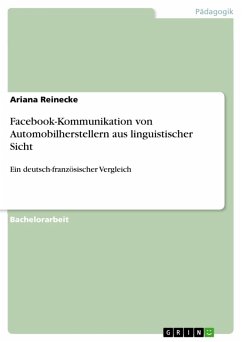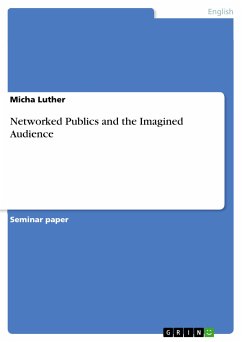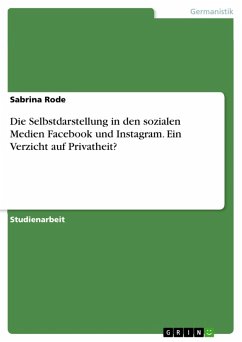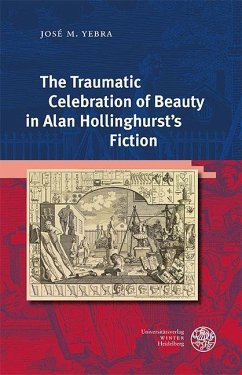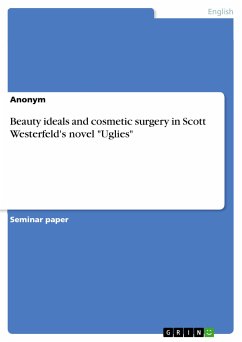
Beauty ideals and cosmetic surgery in Scott Westerfeld's novel "Uglies" (eBook, PDF)
Sofort per Download lieferbar
Statt: 17,95 €**
15,99 €
inkl. MwSt. und vom Verlag festgesetzt.
**Preis der gedruckten Ausgabe (Broschiertes Buch)
Alle Infos zum eBook verschenkenWeitere Ausgaben:

PAYBACK Punkte
0 °P sammeln!
Seminar paper from the year 2018 in the subject English Language and Literature Studies - Literature, grade: 1,5, Karlsruhe University of Education, language: English, abstract: Television, social platforms and advertisements are full of them: successful, rich and irresistibly attractive people. Their pretty faces, their beguiling smiles and glamourous appearances have a great influence on our idea of being beautiful. In our recent society beauty is a privilege, which leads to success, money and an unbridled lovelife. We strive for being equal to them. We envy them for their beauty, their fame...
Seminar paper from the year 2018 in the subject English Language and Literature Studies - Literature, grade: 1,5, Karlsruhe University of Education, language: English, abstract: Television, social platforms and advertisements are full of them: successful, rich and irresistibly attractive people. Their pretty faces, their beguiling smiles and glamourous appearances have a great influence on our idea of being beautiful. In our recent society beauty is a privilege, which leads to success, money and an unbridled lovelife. We strive for being equal to them. We envy them for their beauty, their fame and their lifestyle. At the same time it is obvious, that this world of glamour and flawlessness is moreoften a world of sham and pretence. High prices are paid for a beautyful face or a slim figure. Being under pressure to fit into a certain beauty ideal, the people in our society are victims of a beauty mania, which demands a lot. Not only a ridiculous high consumption of cosmetics and beauty products, but also more drastic measures like cosmetic surgeries or symptomes like anorexia and bulimia can be seen as a sign for that. But let us imagine a world without this beauty competition. A world, in which everyone is equally pretty due to a compulsory cosmetic surgery as a teenager. Scott Westerfeld creates such a scenery in his young dystopian fiction novel "Uglies" and takes a critical approach to a society, which is only based on being pretty. On the basis of this book, I want to have a closer look on our modern beauty ideals and how they influence our recent society. Or rather how our society influences beauty ideals. What problems arise with this beauty mania? What does Westerfeld criticises in his novel? I also want to pay attention on the beauty ideals in a historical context and how they changed over time.
Dieser Download kann aus rechtlichen Gründen nur mit Rechnungsadresse in A, B, BG, CY, CZ, D, DK, EW, E, FIN, F, GR, HR, H, IRL, I, LT, L, LR, M, NL, PL, P, R, S, SLO, SK ausgeliefert werden.





